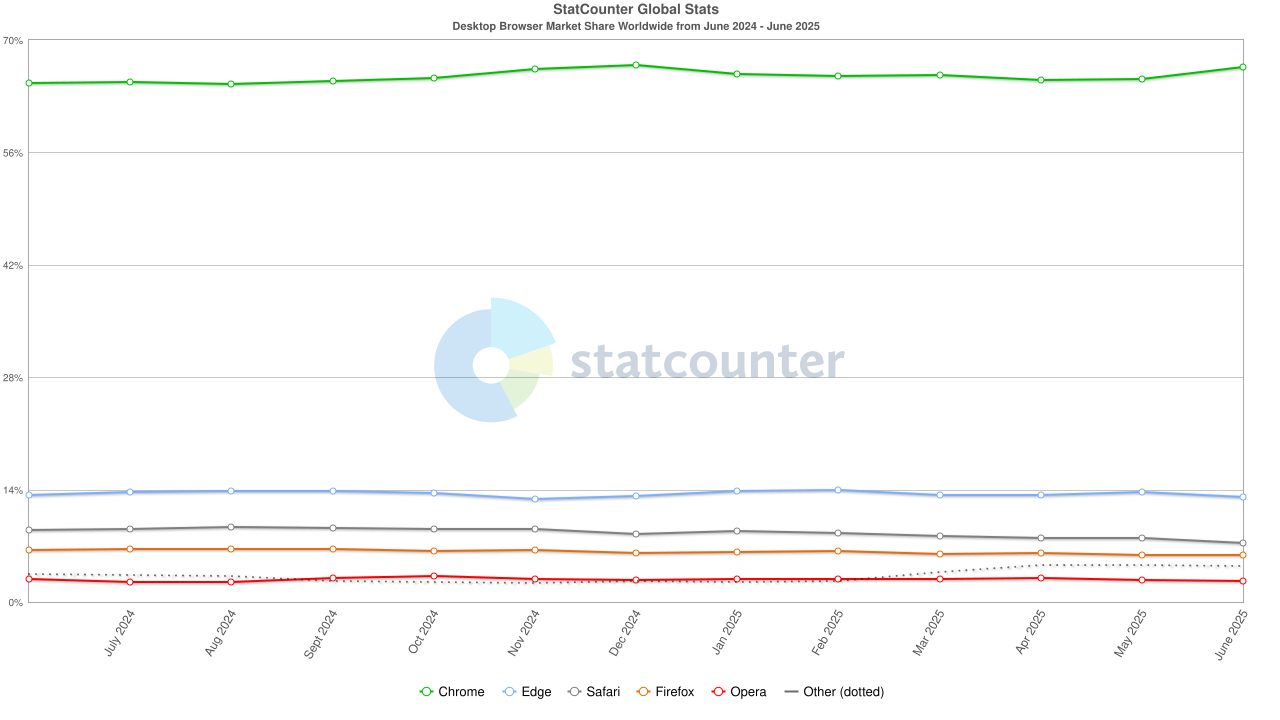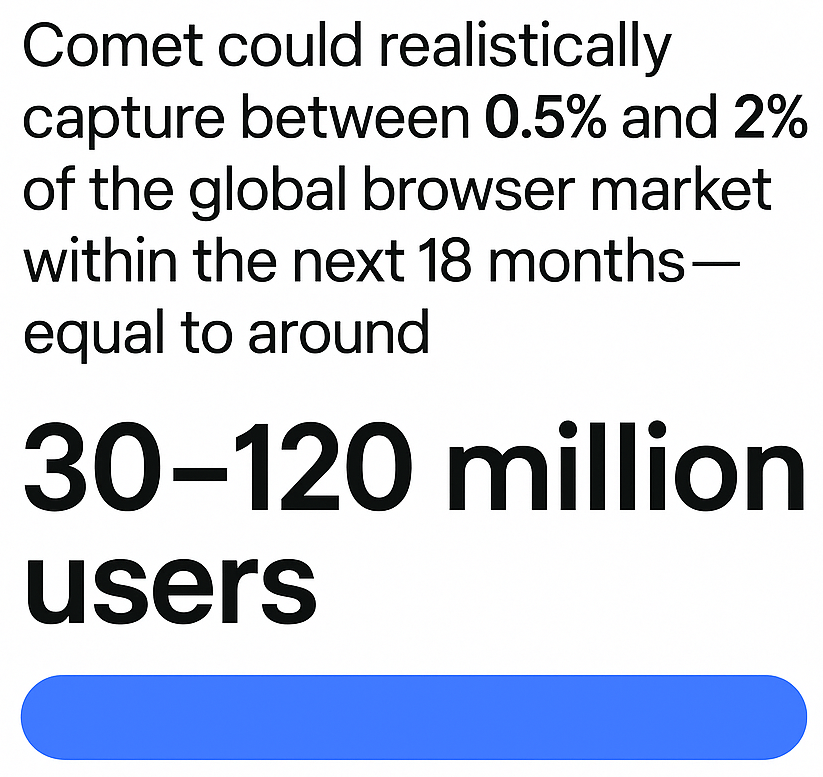Perplexity AI has launched a direct challenge to the browser status quo with Comet, a new AI-native browser that reimagines how users engage with the web. Rather than treating artificial intelligence as a feature layer, Comet embeds AI into the core fabric of the browsing experience — ushering in what Perplexity calls a shift “from navigation to cognition.”
The launch, currently limited to paying users of Perplexity’s new $200/month “Max” subscription tier, signals an aggressive move into territory long dominated by Google Chrome, which currently holds more than 66% of the global browser market.

"Comet is a web browser built for today’s internet," CEO Aravind Srinivas wrote on X. "In the last 30 years, the internet has evolved from something we simply 'browse' or 'search.' The internet is where we live, work and connect.”
AI at the Center of Everything
Unlike Chrome or Safari, Comet isn’t merely a conduit to websites — it’s an active participant. Its Comet Assistant, a persistent AI agent in the sidebar, can read, interpret and act on the contents of any page. That includes summarizing YouTube videos, analyzing Google Docs, comparing products across retail sites or booking a meeting directly from your calendar.
According to Srinivas, "Comet is a browser that's designed to be a thought partner and assistant for every aspect of your digital life: work and personal."
We're excited to finally release our next big product after launching Perplexity in 2022: Comet. Comet is a browser that's designed to be a thought partner and assistant for every aspect of your digital life: work and personal. pic.twitter.com/Ibzw8SCuhZ
— Aravind Srinivas (@AravSrinivas) July 9, 2025
Built on Chromium for extension compatibility, Comet blends local on-device processing for privacy-sensitive tasks with cloud-based APIs for more complex operations. This hybrid approach lets users toggle between performance and privacy, while Comet’s built-in ad blocker puts pressure on Chrome’s increasingly ad-reliant model.
Related Article: OpenAI’s Operator in Action: What It Can — and Can’t — Do
A Premium Product With Broad Ambitions
Comet’s full release is initially restricted to Perplexity Max subscribers, a pricing tier that includes early access to experimental features and API integrations with AI models like OpenAI’s o3-pro and Anthropic’s Claude Opus 4. But Perplexity has signaled plans for a wider rollout in the coming months, with Srinivas mentioning a future invite-only product to prioritize the growing waitlist.

Comet could realistically capture between 0.5% and 2% of the global browser market within the next 18 months — equal to around 30–120 million users. That may sound modest, but in a browser market where even Microsoft Edge and Firefox have struggled to gain ground, it would be a notable disruption.
Still, the steep price point presents a significant barrier to mass adoption. Success will hinge on attracting early adopters, tech enthusiasts and privacy-conscious users.
Google’s Defensive Playbook Just Got Thicker
The browser wars are heating up. Perplexity’s move comes just as OpenAI is rumored to be days away from debuting its own AI-powered browser. With two credible AI challengers on the horizon, Google now faces real pressure to evolve Chrome from a passive tool into an active, intelligent assistant.
Expect Google to counter with:
- Faster integration of its Gemini AI
- Updates to Chrome’s conversational search features
- New strategies to protect its ad revenue, which remains tightly coupled to browser-based activity
With the Justice Department still pushing for a potential forced divestiture of Chrome, Google may also double down on legal appeals and efforts to retain influence over the open-source Chromium project.
Why This Matters to the Enterprise
While the consumer rollout grabs headlines, Comet’s real edge may be in enterprise productivity. Sectors like telecommunications, finance, legal and consulting — where employees routinely juggle unstructured information across tabs, apps and data silos — stand to benefit most from Comet’s AI-native design.
These organizations can use Comet to:
- Summarize internal knowledge bases
- Automate repetitive workflows
- Extract insights from dense documents
- Collate research across multiple platforms
- Maintain privacy and data control via local processing
In these sectors, speed, precision and cognitive load reduction are competitive advantages — and Comet aims to deliver all three.
Related Article: Gemini 2.5 Expands Google’s AI Capabilities for Business
The Bottom Line
"The future belongs to the people who never stop asking questions."
- Aravind Srinivas
CEO, Perplexity
Comet isn’t trying to win the browser wars overnight. But it is trying to redraw the battlefield. By treating AI as the foundation rather than a plug-in, Perplexity has made a bold bet: that users are ready for browsers that think with them, not just for them.
If Google sees Comet as a novelty, it may be in for a surprise. The next phase of the internet isn’t just about where we go — it’s about what the browser does once we get there.
With every new advancement in AI, said Srinivas, "we will continue to launch new features and functionality for Comet, improve experiences based on your feedback and focus relentlessly — as we always have — on building accurate and trustworthy AI that fuels human curiosity. The future belongs to the people who never stop asking questions."
